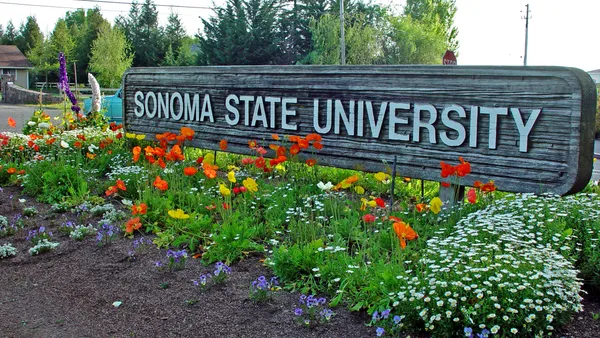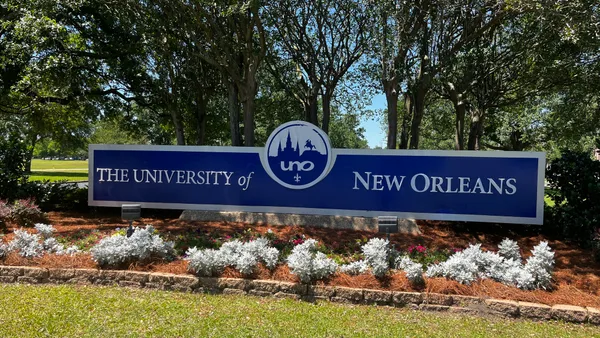Dive Brief:
- More than 65,000 suspected fraudulent financial applications were created in what may have been an attempt to scam the California Community Colleges system, though it's unclear if any money was disbursed to fake students, the Los Angeles Times reported.
- Officials suspect fake student accounts were created to obtain financial aid, such as state grants, Pell grants or coronavirus relief funding, from the system. California Community Colleges is investigating the potential fraud and has alerted the U.S. Department of Education about the activity.
- In a memo this week, a California Community Colleges official said the system is bolstering security measures to prevent more scams, including by requiring college districts to report suspected registration fraud monthly.
Dive Insight:
The California Community Colleges system is vast, enrolling roughly 2 million students across 116 institutions. Officials there believe they've uncovered one of the state's largest financial aid scams ever attempted, the Times reported.
Many of the accounts flagged for being suspicious were first-time applicants to the system who were older than 30, earned less than $40,000 each year and were seeking two-year degrees, the publication noted. Instructors also began to question whether some of their class enrollees were fake.
A system official did not respond to Higher Ed Dive's request for comment Wednesday.
Local college districts also reported unusual activity. The four colleges making up the Los Rios Community College District, which serves the Sacramento area, have seen fraudulent applications, an official told The Sacramento Bee. The applications originated from overseas, but it's unclear whether they're coming from one location, the official added.
Both publications noted that scammers may be attempting to get money from federal coronavirus relief programs. Colleges nationwide received roughly $76 billion across three major legislative packages, which earmarked money to help colleges pay for pandemic-related costs and give students emergency aid.
Several types of scams and fraudulent activity targeting colleges or their students have cropped up during the pandemic. For instance, many schools that require proof of vaccination are concerned their students will buy fake vaccine cards, which can be sold for as little as $25 online, The Associated Press reported.
And student loan debt relief schemes — in which fraudsters falsely offer people debt forgiveness to obtain their personal information — are on the rise. Experts say the pandemic created an opening for these types of scammers to prey upon people who've recently experienced financial hardships.
Increased activity online during the pandemic also made colleges more vulnerable to cyberattacks, including data breaches. Smaller schools may be especially susceptible, as they often don't have as large of a budget for information technology as some other colleges.














